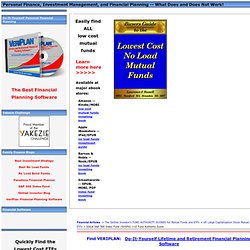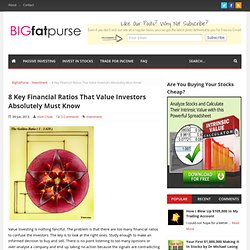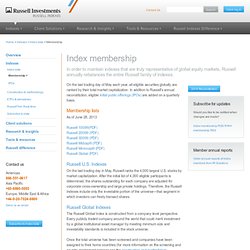

SSGA S&P 500 Index Fund (SVSPX) +10 Fund Authority Score - The Skilled Investor's FUND AUTHORITY SCORES for Mutual Funds and ETFs > US Large Capitalization Stock Mutual Funds & ETFs - Financial Articles. The table below in this article presents The Skilled Investor's Fund Authority Score and other information for the SSgA S & P 500 Index Fund (SVSPX).

The Skilled Investor has also published an article about lower cost S&P 500 index mutual funds that you can read, which is entitled: Low Cost S&P 500 Index Mutual Funds. The State Street Global Advisors S & P 500 Index Fund is on the index fund list from that article, and it is one of the best S&P500 index funds for a lower cost standpoint. Fund Authority Scores for mutual funds and exchange traded funds (ETFs) help you sort diversified investment funds quickly. Fund Authority Scores rate mutual funds and exchange traded funds (ETFs) on the most important economic factors that influence individual investors' net long term diversified investment fund performance.
For a directory of the Fund Authority Score reports of other mutual funds and ETFs, go here. Type of Money Market Instruments. 10-Notes-Securities. Indices. 8 Key Financial Ratios That Value Investors Absolutely Must Know. Value Investing is nothing fanciful.

The problem is that there are too many financial ratios to confuse the investors. The key is to look at the right ones. Study enough to make an informed decision to buy and sell. There is no point listening to too many opinions or over-analyse a company and end up taking no action because the signals are contradicting one another. To help you, I have list down 8 key financial ratios that you, as a value investor, must know. #1 - Price-Earnings PE ratio is the most common financial ratio to investors. Although PE is a favourite ratio, it is ever changing. . #2 – Price / Free Cash Flow(FCF) There is a belief that while it is possible to fake the income statement, it is harder to fake cash flow.
. #3 – Price Earnings Growth Rate (PEG) We recognise the deficiency of PE ratio which is plainly historical performance. . #4 – Price-to-Book or Price-to-Net Asset Value PB ratio is the second most common ratio. Russell Investments. On the last trading day of May each year, all eligible securities globally are ranked by their total market capitalization.

In addition to Russell's annual reconstitution, eligible initial public offerings (IPOs) are added on a quarterly basis. Membership lists As of June 28, 2013 Russell 1000®(PDF) Russell 2000® (PDF) Russell 3000® (PDF) Russell Midcap® (PDF) Russell Microcap® (PDF) Russell Global (PDF) Russell U.S. On the last trading day in May, Russell ranks the 4,000 largest U.S. stocks by market capitalization. Russell Global Indexes The Russell Global Index is constructed from a company level perspective. Once the total universe has been screened and companies have been assigned to their home countries (for more information on the screening and country assignment process see the construction and methodology document), Russell takes the top 98% of the investable universe in the U.S.
Different Types of Stock to Invest In. If you are just starting to learn how to invest in the stock market, no doubt by now you have noticed that there seems to be many different types of stocks that you have the option of investing in.

In this article, you will discover the different types of stocks you can invest in and the pros and cons of each type of stock. Technically, there are two types of stock that people own: common stock and preferred stock. However, when people are talking about buying and investing in stocks, they are talking about common stock. Below, you will discover what each of these types of stock is and the subsets of those types of stocks.
Different Types of Stock: Preferred Stock Preferred stocks are an unusual type of stock that act much more like a bond than common stock does. These stocks over the long run are typically not as profitable as common stocks, but they also are less likely to lose value simply because when a company goes bankrupt, preferred stockholders are paid off first. 24/7 Wall St. - Insightful Analysis and Commentary for U.S. and Global Equity Investors. Investors Chronicle ? Daily share tips & advice for the private investor.